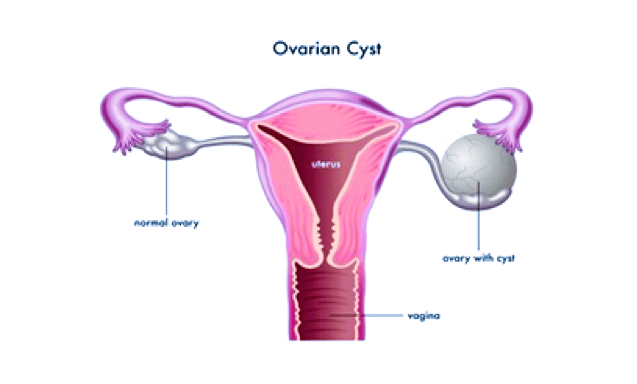Ovarian Cysts: Causes, Symptoms, Treatment, and Precautions
Learn about ovarian cysts, including their causes, symptoms, treatment options, and precautions. Stay informed for better health and wellness. #ovarian cysts


Introduction
Ovarian cysts are fluid-filled sacs that form on or inside the ovaries. While most ovarian cysts are harmless and disappear on their own, some may cause discomfort or require medical intervention. In this article, we will explore the causes, symptoms, treatment options, and precautions associated with ovarian cysts.
Causes of Ovarian Cysts
Ovarian cysts can develop for various reasons:
Hormonal Imbalances: Hormonal imbalances, such as those caused by polycystic ovary syndrome (PCOS), can lead to the formation of cysts.
Endometriosis: Endometriosis, a condition where the tissue lining the uterus grows outside of it, can also result in ovarian cysts.
Pregnancy: Occasionally, cysts can form during pregnancy, usually resolving on their own.
Functional Cysts: Functional cysts, such as follicular or corpus luteum cysts, form during the normal menstrual cycle and typically disappear within a few menstrual cycles.
Symptoms of Ovarian Cysts
Ovarian cysts may not always cause noticeable symptoms. However, when they do, the following signs and symptoms may occur:
Pelvic Pain: Dull or sharp pain in the lower abdomen or pelvis.
Irregular Menstrual Cycles: Changes in the length or regularity of menstrual periods.
Abdominal Bloating: Feeling of heaviness or fullness in the abdomen.
Difficulty Urinating: Increased frequency or urgency to urinate.
Changes in Bowel Habits: Constipation or difficulty with bowel movements.
Painful Intercourse: Discomfort or pain during sexual intercourse.
Treatment Options for Ovarian Cysts
The appropriate treatment for ovarian cysts depends on several factors, including the size of the cyst, the presence of symptoms, and the individual's age and overall health. Treatment options may include:
Watchful Waiting: If the cyst is small and not causing any symptoms, the doctor may recommend monitoring it over time.
Medication: Birth control pills or hormonal medications may be prescribed to regulate the menstrual cycle and prevent the formation of new cysts.
Surgical Intervention: If the cyst is large, persistent, or causing severe symptoms, surgery may be necessary to remove it. In some cases, the entire ovary may need to be removed.
Precautions for Ovarian Cysts
While it is not always possible to prevent ovarian cysts, certain precautions may help reduce the risk or manage existing cysts:
Regular Check-ups: Schedule regular gynecological check-ups to monitor your reproductive health and detect any abnormalities early.
Healthy Lifestyle: Maintain a balanced diet, exercise regularly, and manage stress levels to promote overall wellness.
Birth Control: Consult with your healthcare provider about the use of hormonal birth control methods, which can help regulate hormone levels and prevent cyst formation.
Be Aware of Symptoms: Familiarize yourself with the symptoms of ovarian cysts and seek medical attention if you experience any concerning signs.
Conclusion
Ovarian cysts are a common occurrence in many women and can have varying causes and symptoms. While most cysts are harmless, it is important to be aware of any changes in your body and seek medical advice if needed. By understanding the causes, symptoms, treatment options, and precautions associated with ovarian cysts, you can take proactive steps towards maintaining your reproductive health.
